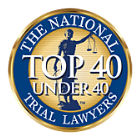5,000+
2,000+
5 Star
Vaccine Injury Claims
Fighting for Vaccine Injury Victims – Get the Compensation You Deserve
Seek compensation through the Vaccine Injury Compensation Program in the United States Court of Federal Claims. My Vaccine Lawyer builds your petition, presents medical evidence to a special master, and pursues an award for medical expenses, lost earnings, and suffering.
When a vaccine injury happens, the next step isn’t a civil lawsuit as most people search for, but a claim filed through the Vaccine Injury Compensation Program, known as the VICP. This national compensation system was created by federal law to help persons injured by certain vaccines covered under the program receive fair payment for their losses. Each vaccine injury claim is handled in the United States Court of Federal Claims, a specialized federal court that oversees all petitions under this program. Instead of a jury, a special master reviews the evidence and issues a decision. The process provides compensation without the delays and conflicts of the traditional tort system.
The program is funded by a federal excise tax placed on every dose of eligible vaccines, not by vaccine manufacturers or healthcare providers. Compensation can include medical expenses, lost earnings, and payments for pain and suffering, depending on the severity of the adverse reactions. At My Vaccine Lawyer, we prepare your petitioner's claim with the medical proof, documentation, and timing that meet the standards set by the Department of Health and Human Services. Our focus is precision, strategy, and results inside the compensation program that governs every vaccine related injury in America.

Awards and Associations
One of more of our attorneys have been recognized for the following:

Hear Cheryl's Vaccine Injury Story
Cheryl, a former client of My Vaccine Lawyer, shares her experience with Shoulder Injury Related to Vaccine Administration (SIRVA) following a flu shot. She describes the sudden onset of pain, limited shoulder mobility, and a long recovery process that led her to seek legal help from attorney Max Muller.
With his support, Cheryl filed a successful claim through the Vaccine Injury Compensation Program and received a settlement covering her medical expenses, lost wages, and pain and suffering. SIRVA symptoms typically include sudden pain within 48 hours of vaccination, restricted range of motion, and discomfort that can last for weeks or months.
Who May File a Vaccine Injury Claim
You can file a vaccine injury claim if you or someone in your care suffered a verified reaction after a covered vaccine. Adults (including pregnant women) and children are all eligible to seek compensation when a vaccine related injury leads to lasting pain, limited mobility, or other medical complications.
Eligibility depends on two things: the type of vaccine and the timing of symptoms. The official vaccine injury table lists each covered vaccine and how quickly the first symptom must appear. For instance, Shoulder Injury Related to Vaccine Administration (SIRVA) can cause pain and stiffness within 48 hours of a flu or Tdap shot. Guillain-Barré Syndrome may develop in the weeks following a human papillomavirus or hepatitis B vaccine. In rare cases, a severe allergic reaction such as anaphylaxis can occur within minutes of receiving a pneumococcal conjugate or MMR vaccine.
The United States Court of Federal Claims reviews these cases through experienced special masters who assess medical evidence, timing, and credibility. That process decides whether the claim qualifies for payment under the Vaccine Injury Compensation Program. If your symptoms began within the expected timeframe or your doctor has connected your condition to one of the certain vaccines listed by the program, you may be eligible to seek compensation through this federal claims process.
Types of Vaccine Injuries Covered
Each claim under the Vaccine Injury Compensation Program must involve a covered vaccine and a medically recognized reaction. These are the categories most often seen in successful vaccine injury claims.
-
Shoulder Injuries (SIRVA)
-
Occur after improper needle placement during routine administration.
-
Common with flu, Tdap, and other childhood vaccines.
-
Symptoms: sudden pain, stiffness, and limited movement within 48 hours.
-
Compensation often includes medical expenses, physical therapy, and lost earnings during recovery.
-
-
Neurological and Autoimmune Disorders
-
Includes Guillain-Barré Syndrome, CIDP, and transverse myelitis.
-
Frequently linked to human papillomavirus, influenza, and hepatitis B vaccines.
-
May require hospitalization or long-term rehabilitation.
-
Awards reflect severity, long-term care needs, and disruption to daily life.
-
-
Severe Allergic Reactions
-
Anaphylaxis and similar responses can follow pneumococcal conjugate or MMR vaccines.
-
Usually appear within minutes to hours.
-
Eligible claims document emergency care and follow-up treatment.
-
-
Pain Syndromes and Nerve Damage
-
Brachial neuritis, Parsonage-Turner Syndrome, and complex regional pain syndrome can result from localized injury or immune response.
-
Each requires verified diagnosis and proof of vaccine timing.
-
-
Encephalitis and Other Serious Adverse Reactions
-
Rare but compensable under the vaccine injury table.
-
Linked to certain vaccines including MMR and varicella.
-
Claims focus on neurological evaluation and recovery outcomes.
These categories don’t limit eligibility. Any injury that meets the medical and timing standards in the federal claims court may qualify for payment under the national vaccine injury compensation system.
-
We are the Highest Rated Vaccine Injury Law Firm in the Country!
SEE OUR NOTABLE SETTLEMENTS
See some of our vaccine injury settlements in the VICP.
See Vaccine Settlements Here
MEET MAX
Max is a founding Partner of My Vaccine Lawyer and has been a Super Lawyer for 11 years straight.
Meet Max
MEET PAUL
Paul is a founding Partner at My Vaccine Lawyer and has been featured in the Washington Post and CBS News for his accomplishments.
Meet Paul
The Legal Process for Vaccine Injury Claims
Filing a vaccine injury claim under the Vaccine Injury Compensation Program follows a precise legal process. Each step is defined by federal procedure and handled in the United States Court of Federal Claims. My Vaccine Lawyer manages this process from the first consultation to the special master’s decision, ensuring every document, record, and report meets the program’s strict standards.
1. Initial Case Review
Our attorneys evaluate your vaccination records, symptom timeline, and diagnosis to confirm eligibility under the vaccine injury table. We review documentation from healthcare providers and verify that your condition aligns with a covered vaccine.
2. Filing the Petition
We prepare and file the petitioner's claim in the federal claims court. The claim is served on the Department of Health and Human Services, which reviews medical evidence to determine whether it meets the program’s medical criteria.
3. Government Response and Evidence Development
Government attorneys and medical experts evaluate the records. We respond with expert testimony, detailed affidavits, and any additional diagnostic information required. Every claim is built to satisfy the compensation program’s evidentiary threshold, not general personal injury standards found in civil court.
4. Special Master Review
A special master, one of eight who oversee all vaccine cases, reviews the evidence and issues a special master’s decision. These decisions rely on causation, timing, and the strength of medical documentation rather than fault or negligence.
5. Settlement or Judgment
Most cases resolve through negotiated settlements. When necessary, the special master issues a final judgment. Compensation may include medical expenses, lost earnings, and reimbursement for documented suffering associated with the injury.
6. Payment
Approved awards are paid through the federal trust fund supported by the federal excise tax on each dose of vaccine, not by vaccine manufacturers.
Each petition follows the same foundation: verified records, credible medical support, and exact compliance with federal law. This system allows those affected by serious adverse reactions to seek compensation and obtain compensation without entering the traditional civil action process.
Speak With A Lawyer Now!
Get a Free Consultation & See What Your Claim Is Worth
Have your case evaluated directly from one of our vaccine lawyers.
What You May Recover
Compensation under the Vaccine Injury Compensation Program is determined by documented loss. Each award is calculated through the federal claims process based on medical treatment, impact on employment, and the length of recovery. Typical categories include:
-
Medical expenses for hospital care, rehabilitation, and future treatment
-
Lost earnings for time away from work or long-term disability
-
Pain and suffering linked to physical and emotional recovery
-
Reasonable attorneys’ fees paid by the program once a case has a sound medical and legal basis
Examples from My Vaccine Lawyer case history show how the program applies these standards in practice:
-
$4,095,193 for encephalitis following a Tdap vaccine, covering full-time care and lost wages
-
$2,473,607 for Guillain-Barré Syndrome after a flu shot, including rehabilitation and ongoing medical support
-
$210,000 for Shoulder Injury Related to Vaccine Administration (SIRVA) after a routine flu vaccination
-
$500,000+ for anaphylaxis resulting from a pneumococcal conjugate vaccine
See more of our notable settlements.
These examples reflect the range of vaccine injury compensation possible under the national vaccine injury compensation system. Every case depends on verified evidence and credible diagnosis, not estimates or assumptions.
1. Contact Your Doctor
If you suffered a vaccine-related injury, adverse effects or worsening symptoms, call your doctor immediately.
Still Have Questions?
-
Why you need a specialized vaccine injury lawyer!
Every vaccine injury claim depends on precision. The Vaccine Injury Compensation Program sets strict rules for how petitions are filed, what evidence is accepted, and when deadlines expire. Missing a single medical record or filing date can limit or reduce your compensation.
At My Vaccine Lawyer, every case begins with detailed evidence mapping.
-
We verify vaccine dates, first symptoms, and treatment through your healthcare providers.
-
We prepare expert statements linking diagnosis to a covered vaccine.
-
We meet every federal claims filing standard, including record formatting and timeline validation.
Claims that fail to meet these criteria can be dismissed or awarded less than their full value. Incomplete filings, missing test results, or unsupported causation often result in lower medical expenses and lost earnings awards. Strong documentation and well-structured petitions, on the other hand, consistently lead to faster and higher settlements.
Only attorneys admitted to the United States Court of Federal Claims can represent petitioners before the program. My Vaccine Lawyer handles this process daily, ensuring every submission aligns with the expectations of the special master and the compensation program.
-
-
How are new vaccines added to the Vaccine Injury Compensation Program?
When new vaccines are approved for public use, they are reviewed for inclusion under the National Vaccine Injury Compensation Program. The Secretary of Health and Human Services periodically evaluates data from the Centers for Disease Control and Prevention on vaccine safety and updates the list of vaccines recommended for routine use. Once approved, these additions are published in the Federal Register and may be reflected on the official vaccine injury table as additional vaccines eligible for claims.
-
Who decides outcomes in the Court of Federal Claims?
Each case is assigned to one of eight special masters who specialize in vaccine litigation. These experts review all medical records, testimony, and evidence before issuing decisions. Their rulings are grounded in data from health care providers and research on confirmed adverse events, ensuring that every award reflects the medical facts presented.
-
How does the program relate to the National Childhood Vaccine Injury Act?
The National Childhood Vaccine Injury Act established the VICP as a safeguard for families affected by childhood vaccine injury while maintaining the stability of the national immunization system. The act created the compensation program, set filing procedures, and reaffirmed public confidence in vaccines by holding the government, not vaccine manufacturers, responsible for payouts through the federal trust fund.
-
Are medical devices or delivery systems ever covered?
Injuries caused directly by medical devices, such as syringes or injectors, are typically excluded from vaccine claims. The program focuses on biological reactions to vaccine ingredients rather than equipment-related issues. However, documentation from health care providers is essential to clarify whether the injury stemmed from the injection technique or the vaccine itself.
-
Does the program monitor vaccine safety and adverse trends?
Yes. The Department of Health and Human Services coordinates with agencies like the Centers for Disease Control and Prevention and the Food and Drug Administration to track ongoing vaccine safety data. Reports of adverse events feed into national monitoring systems that help identify rare instances of serious reaction and guide updates to future vaccines recommended for the public.
Recent Blogs
How Long Do Flu Shot Side Effects Last?
Paul Brazil: Jan 22, 2026
What is the NCVIA?
Paul Brazil: Nov 10, 2025
Frozen Shoulder After Vaccine
Max Muller: Nov 5, 2025